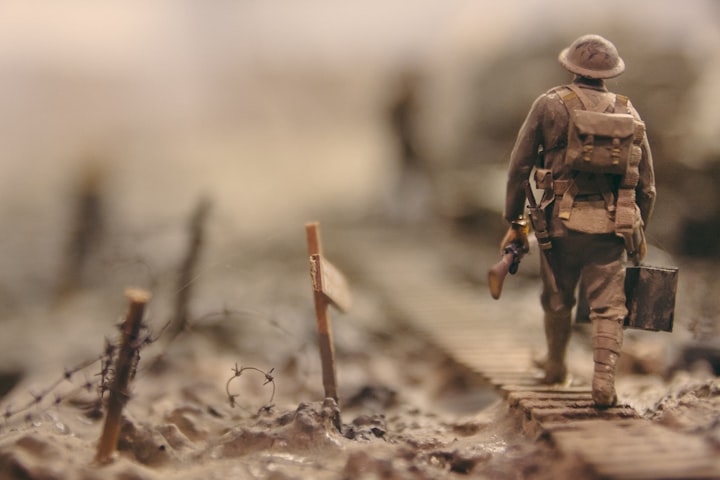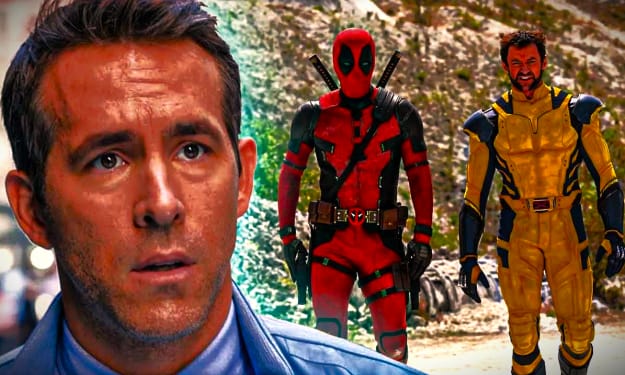The Afghani-American War: A Legacy of Complexity and Controversy
Exploring the Consequences and Challenges of America's Longest War

The Afghani-American war, which began in 2001, has been one of the longest and most complicated conflicts in modern history. It has taken countless lives, cost trillions of dollars, and has had a profound impact on both the Afghan and American societies. In this article, we will discuss the origins of the war, the major events and developments throughout its course, and the current state of affairs.
Origins of the War
The roots of the Afghani-American war can be traced back to the Soviet invasion of Afghanistan in 1979. The Soviet Union attempted to prop up a communist government in the country, which led to a long and brutal conflict with various resistance groups. The United States, along with other Western powers, provided support to the resistance groups, known as the Mujahideen. This support included weapons, training, and financial assistance.

The Mujahideen eventually succeeded in forcing the Soviet Union to withdraw from Afghanistan in 1989. However, the country was left in a state of chaos, with various factions vying for power. The Taliban emerged as a dominant force in the mid-1990s, imposing a strict interpretation of Islamic law and harboring terrorist groups such as Al-Qaeda.
The events of September 11, 2001, changed the course of history and led to the start of the Afghani-American war. Al-Qaeda, which was based in Afghanistan under the protection of the Taliban, carried out a series of devastating attacks on the United States, including the hijacking of four planes, two of which were flown into the World Trade Center towers in New York City, killing nearly 3,000 people. The United States declared a war on terror and launched an invasion of Afghanistan to overthrow the Taliban and dismantle Al-Qaeda.
Major Events and Developments
The invasion of Afghanistan in 2001 was swift and successful, with the Taliban quickly ousted from power. The United States and its allies established a new government, led by President Hamid Karzai, and began a massive reconstruction effort aimed at rebuilding the country's infrastructure and institutions.

However, the situation in Afghanistan quickly deteriorated as the Taliban regrouped and launched a guerrilla war against the new government and its international backers. The United States also became embroiled in a conflict with Al-Qaeda and other terrorist groups, launching drone strikes and targeted killings to eliminate their leadership.
As the war dragged on, it became clear that the United States and its allies faced a difficult and complex task in stabilizing Afghanistan. The country was plagued by corruption, weak institutions, and a resurgent Taliban insurgency that controlled large swaths of territory. The United States poured billions of dollars into the country in an effort to build a strong central government and modernize the economy, but progress was slow and often hampered by the country's deep-seated problems.

The war also took a heavy toll on both American and Afghan lives. As of 2021, over 2,400 American soldiers had been killed in the conflict, along with tens of thousands of Afghan civilians and military personnel. The war also displaced millions of Afghans and left many without access to basic services such as healthcare and education.
Current State of Affairs
In recent years, there have been several major developments in the Afghani-American war. In 2019, the United States and Taliban began peace talks aimed at ending the conflict. These talks resulted in a historic agreement in February 2020, which called for a phased withdrawal of US troops from Afghanistan in exchange for the Taliban renouncing terrorism and committing to negotiations with the Afghan government.

However, progress has been slow and the situation in Afghanistan remains highly unstable. The Taliban has launched a series of attacks on Afghan security forces and civilians, and violence has continued to escalate in recent months. In April 2021, President Joe Biden announced that the United States would withdraw all troops from Afghanistan by September 11, 2021, effectively ending the country's longest war.
The decision to withdraw was met with mixed reactions. Some argued that it was long overdue and that the United States had accomplished its mission of eliminating Al-Qaeda and dismantling the Taliban's infrastructure. Others expressed concern that a rapid withdrawal would leave Afghanistan vulnerable to further instability and violence, with the potential for a Taliban resurgence.

In August 2021, the Taliban launched a major offensive across Afghanistan, taking control of multiple cities and towns and putting pressure on the Afghan government. The United States deployed additional troops to evacuate American citizens and Afghan allies, but the situation continued to deteriorate. On August 15, 2021, the Taliban took control of the capital city, Kabul, and President Ashraf Ghani fled the country.
The swift collapse of the Afghan government and the Taliban's return to power has raised serious questions about the legacy of the Afghani-American war. Many argue that the war was a failure, with billions of dollars wasted and thousands of lives lost, only to see the Taliban regain control. Others point to the progress made in Afghanistan over the past two decades, including increased access to education and healthcare, and argue that the United States should have continued its efforts to support the Afghan government and prevent a Taliban takeover.

Conclusion
The Afghani-American war has been a long and complicated conflict with far-reaching consequences for both the United States and Afghanistan. While the United States accomplished its initial goal of eliminating Al-Qaeda and dismantling the Taliban's infrastructure, the subsequent efforts to stabilize and rebuild Afghanistan were hampered by corruption, weak institutions, and a resurgent Taliban insurgency.

The decision to withdraw all US troops from Afghanistan in 2021 has led to the swift collapse of the Afghan government and the return of the Taliban to power. The situation remains highly unstable, with questions about the future of Afghanistan and the legacy of the war. The Afghani-American war serves as a reminder of the complexities of modern warfare and the challenges of rebuilding a society torn apart by conflict.
About the Creator
Muhammad Telmeez
hey there! i'm a reader since my childhood and a writer. I read and write about health, wealth and life. I also write about human psychology and human nature.
Reader insights
Outstanding
Excellent work. Looking forward to reading more!
Top insights
Compelling and original writing
Creative use of language & vocab
Easy to read and follow
Well-structured & engaging content
Excellent storytelling
Original narrative & well developed characters
Expert insights and opinions
Arguments were carefully researched and presented
Eye opening
Niche topic & fresh perspectives
Heartfelt and relatable
The story invoked strong personal emotions
Masterful proofreading
Zero grammar & spelling mistakes
On-point and relevant
Writing reflected the title & theme






Comments
There are no comments for this story
Be the first to respond and start the conversation.